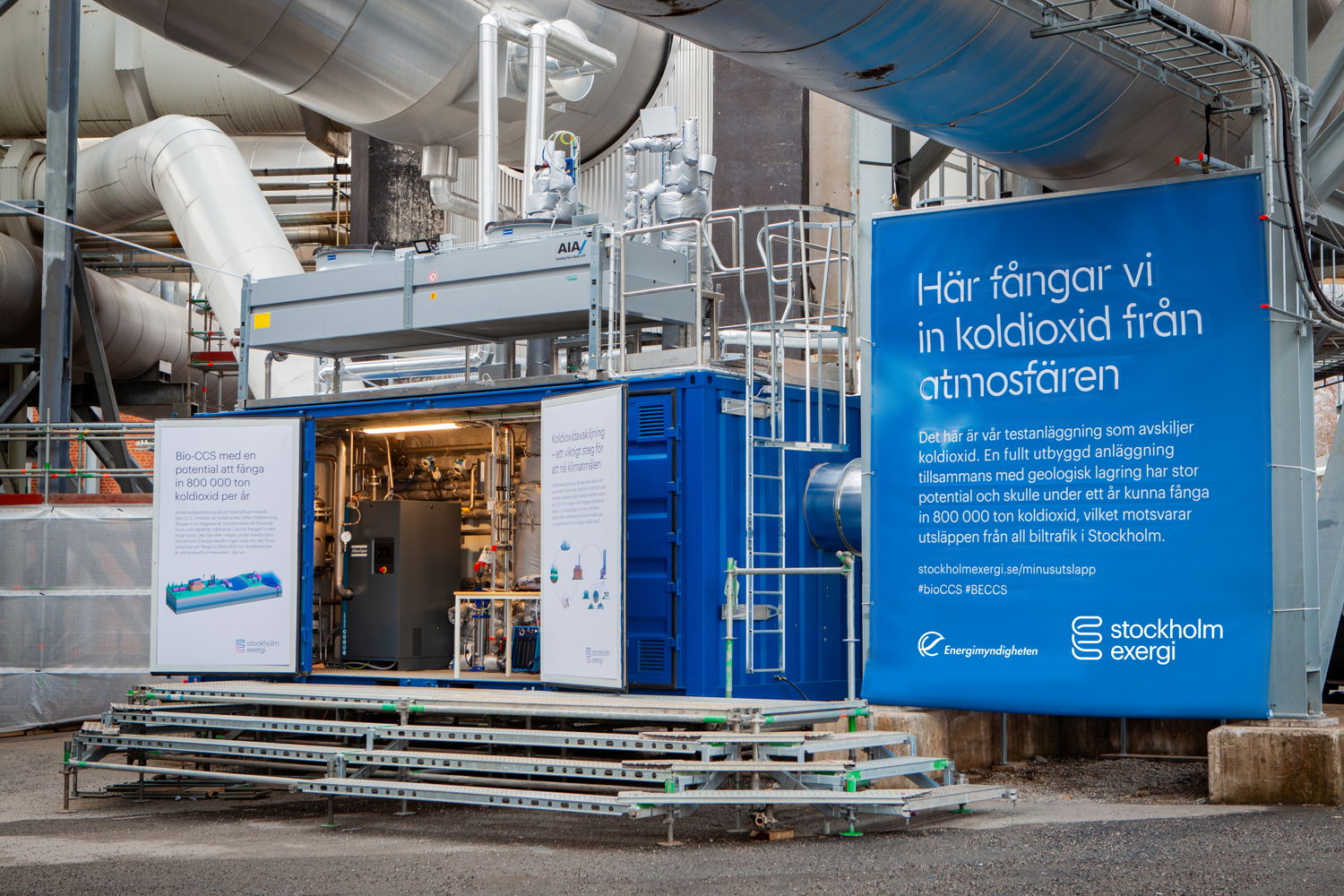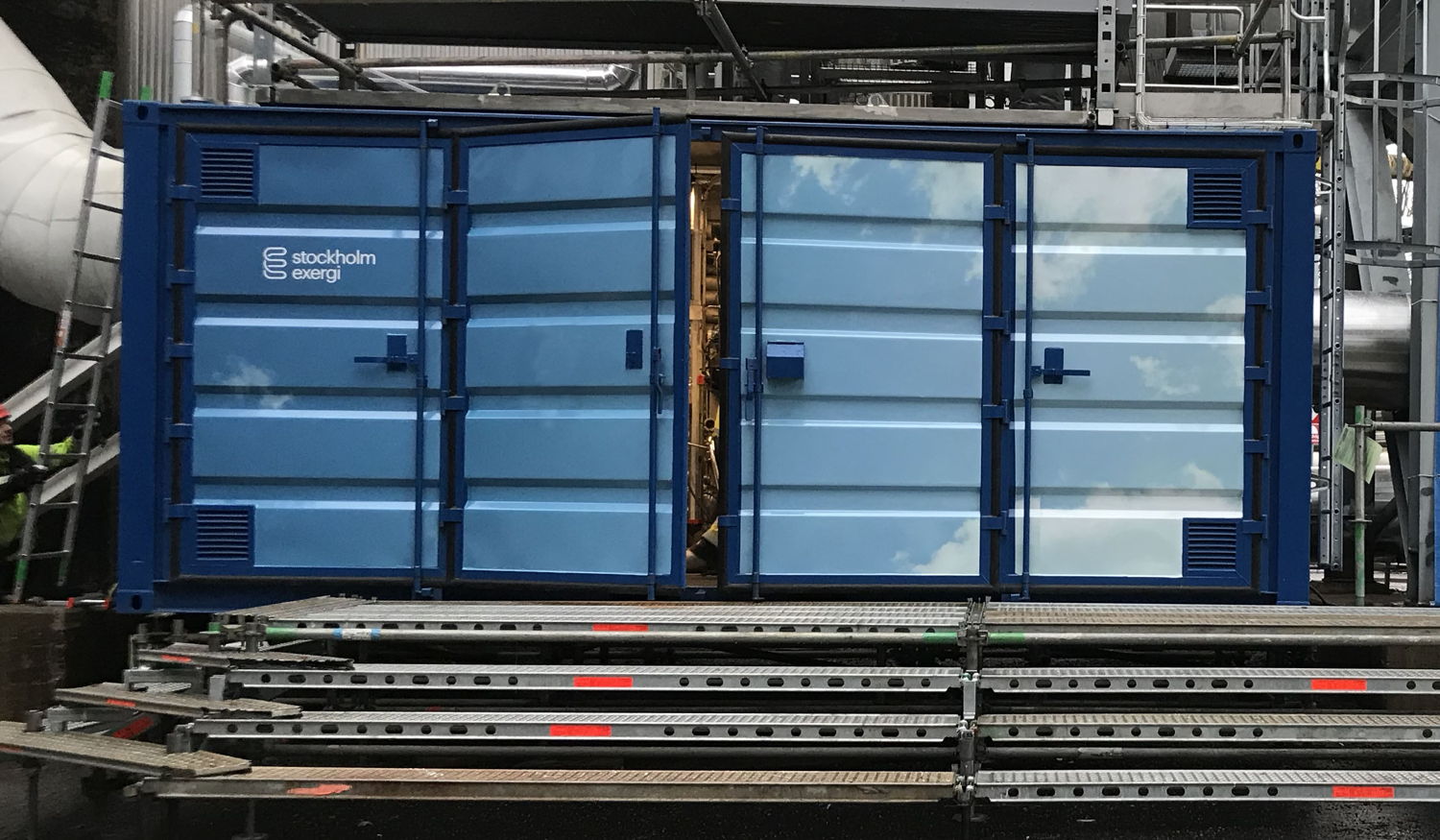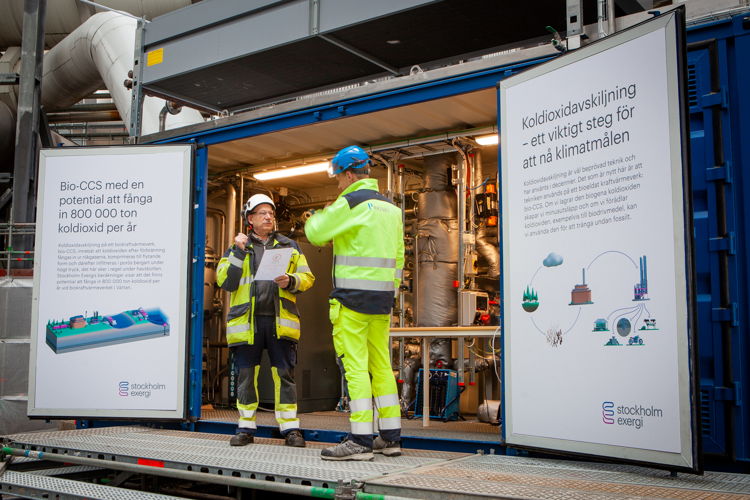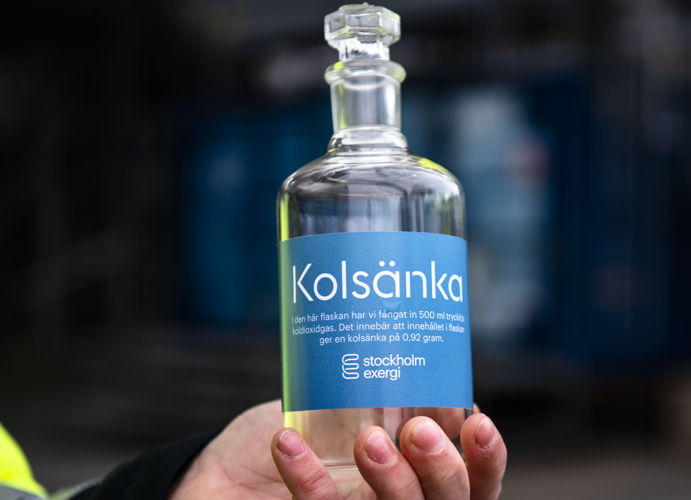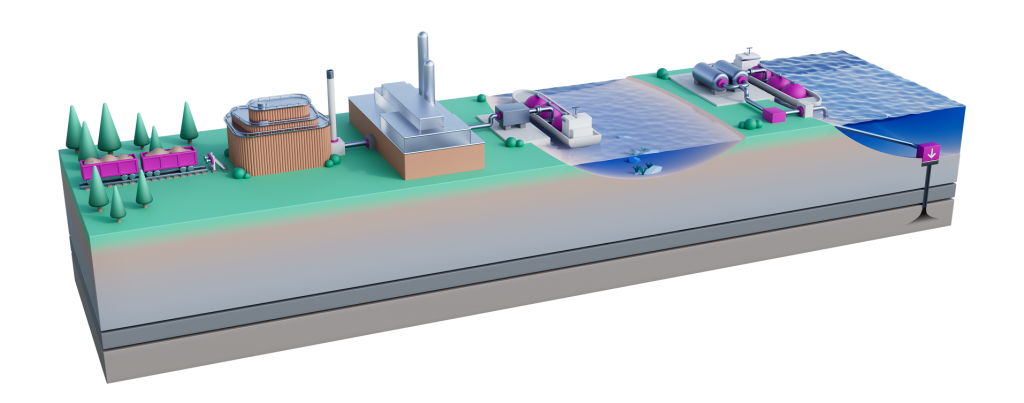Swedish project pioneering bioenergy carbon capture and storage technology announced as finalist in the European Sustainable Energy Awards
Beccs Stockholm is responding to climate change by combining atmospheric carbon removal with heat recovery and establishing a market for net carbon removals

By developing the world’s first bioenergy carbon capture and storage (BECCS) facility at an existing heat and power biomass plant, Beccs Stockholm will remove over 8Mt of CO2 emissions during its first ten years of operations - the equivalent of all greenhouse gas emissions from public sector electricity and heat production in Sweden in 2018. The total potential of BECCS technology in Sweden could produce 30 million tons of negative CO2 emissions per year, contribute more than €2 billion to national GDP and create 28 000 jobs. The highly innovative solution is establishing a model that can be replicated throughout Sweden and worldwide in other heat and power biomass sites.
Khashayar Farmanbar, Sweden’s Minister for Energy and Digital Development praises the project. ‘Sweden’s goal is to create new jobs by being at the forefront of climate change mitigation and the green transition. We are really proud and happy that Stockholm Exergi is nominated for the European Sustainable Energy Awards. Bioenergy carbon capture and storage is a key technology for coping with climate change and the knowledge built here will be important for Sweden and the rest of the world.’
‘Not only do we need to reduce fossil fuels, but we need to remove carbon dioxide from the atmosphere,’ says Stockholm Exergi CEO Anders Egelrud. ‘Beccs Stockholm clearly shows that without using more resources we can actually remove CO2 in quite large numbers.’
The solution also has great potential to be scaled across the economy by replicating the technology in other industries, such as the pulp and paper industry, waste incinerators and heat plants. National and local officials have also rallied behind the flagship project which is financed through Stockholm Exergi, the Swedish Energy Agency and is one of seven large-scale projects awarded a first-round grant from the EU Innovation Fund.
Mayor of Stockholm, Anna König Jerlmyr, comments, ‘Stockholm is at the forefront of the green transition and our goal is to become a leader when it comes to environmental technology. This is why we believe in bioenergy carbon capture and storage so strongly. It has the potential to collect 800 000 tonnes of CO2 annually. This is a great chance not only to reduce climate emissions within our own borders but also to export technology that can fight climate change globally.’
Combining BECCS technology with district heating allows for an energy-efficient process that captures and permanently stores CO2, leading to carbon removals from the atmosphere, also called negative emissions. When biofuel is incinerated in a combined heat and power plant with carbon capture and storage, up to 90% of the carbon dioxide is captured.
In addition to drastically reducing carbon emissions, removal of CO2 from the atmosphere is largely considered necessary to meet global climate goals. BECCS has been identified as a key technology and one of the priority actions for accelerating the energy system’s transformation in the EU’s Strategic Energy Technology Plan. Such projects are delivering on the European Green Deal, and more urgently, supporting the REPowerEU Plan to accelerate the clean energy transition and increase Europe’s energy independence.
EU-funded projects raising the profile of new ideas
Beccs Stockholm is one of three finalists shortlisted for the European Sustainable Energy Awards 2022 in the Innovation category. The award recognises outstanding ongoing or recently completed EU-funded projects that show an original and innovative path toward the clean energy transition. The other finalists in the Innovation category are ENVISION and MUSE GRIDS.
ENVISION is using innovative facade technologies during building renovations to generate energy, enabling energy positive building throughout Europe. MUSE GRIDS is increasing the use of renewable energy sources at the local level by creating synergies between different energy systems and networks to form energy communities.
European Sustainable Energy Awards honour changemakers taking bold action on energy and climate goals
The European Sustainable Energy Awards recognise outstanding individuals and projects for their innovation and efforts in energy efficiency and renewables. Prizes will be awarded in four categories: Innovation, Local Energy Action, Woman in Energy, and Young Energy Trailblazer. Finalists are chosen by a high-level jury from a shortlist of the year’s most successful projects and actions for clean, secure and efficient energy. The winners will be decided by an online public vote which is open now until 18 September.
EUSEW 2022
The European Sustainable Energy Week (EUSEW) takes place on 26 to 30 September 2022 under the theme ‘Going green and digital for Europe’s energy transition’. EUSEW will bring thousands of sustainable energy stakeholders together both in Brussels and online to discuss Europe’s energy independence ambitions and climate goals through the REPowerEU Plan’s measures of energy savings, diversification of energy supplies and an accelerated roll-out of renewables.
Registrations for onsite and online attendance are now open.
For interview requests with the EUSEW 2022 Award finalists or additional media information, please contact media@eusew.eu
